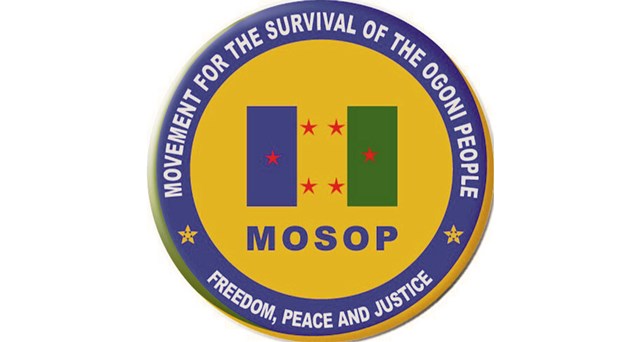Health
NOA Tasks Royal Fathers, Women On Health Centres
As the Maternal Newborn and Child Health Week (MNCHW), an immunisation programme of the Rivers State Government and partner agency, commenced on Monday, June 18, 2012, the National Orientation Agency (NOA), has called on traditional rulers and women to avail themselves the opportunity it provides.
The state Director, NOA, Andy Nweke, made this call at the palace of the paramount ruler of Obeakpu, in Oyigbo Local Government Area of Rivers State.
Chief Nweke said the MNCHW which is a programme of the state government and United Nations Children Education Fund (UNICEF), was designed to last one week and its expected to administer vaccines to children from 0-five years and women of child bearing age 15-49 years and called on the traditional rulers to encourage the subjects particularly women and fathers to accept the immunisation and properly use the health facilities provided by the state government.
He noted that if they would compliment governments efforts in ensuring adequate healthcare for the people by utilising the facilities, government would be encouraged to do and warned them against vandalism.
He also encouraged them to report any health worker who did not report for duty or any other misdemeanour to his office and propriate disciplinary measures would be taken against such through the state Ministry of Health.
The paramount ruler, His Royal Highness, Eze S. N. Nweke (JP), who was represented by the secretary of the Obeakpu Council of Chiefs, Chief Godwin Igwe, thanked the NOA boss and his team for the visit and promised that they would ensure proper use of the health facilities in their community and encourage the immunisation of their children.
In her address to the women, the state Social Mobilisation Officer (SMO), Ministry of Health, Doris Nria, told them that refusal to use the health facilities could lead to fatalities and decay and stressed that it was important that they patronise the health facilities.
Mrs Nria explained that the MNCH Week is loaded with 12 interventions including vaccination of children, 0-five years against disease such as tuberculosis, whooping cough, poliomyelitis, hepatitis, B, HIB, measles, tatanus and yellow fever.
According to her, there would also be free distribution of vitamin-A anti-malarial, de-worming, folate and iron drugs and Long Lasting Insecticidal Nets (LLINs) while women of child bearing age would be given tetanus vaccine as well as health talk.
She encouraged them to visit a health centre or temporary fixed post closest to them to receive the vaccines.
On her part, Deputy Director, Health Education and Community Mobilisation, Rural Water Supply and Sanitation Agency, Charity Blakk, talked to the women on personal hygiene and proper hand washing methods as well as proper waste disposal methods.
Mrs. Blakk told them they must wash their hands with soup or as after handling fasces, visiting the toilet, returning from the farm or a visit, before and after handling food.
She also advised that where a water cistern toilet was not available, they could dig a pit and cover the feaces with ash to help prevent flies from perching on them and spreading diseases.
In his remarks, Director Public Enlightenment Rivers State Ministry of Information, Paulinus Nsirim, stated that the MNCH Week, was a bi-annual programme approved by the National Council of Health, Asaba-capital of Delta State, and thanked the Rivers State Government for taking the issue of health seriously.
Tonye Nria-Dappa
Health
‘How Micro RNA Research Won Nobel Prize’
Two United States scientists who unraveled the human micro RNA have won the Nobel Prize in Physiology or Medicine 2024.
Victor Ambros and Gary Ruvkun won the coveted prize for their work on microRNA as their discoveries help explain how complex life emerged on earth and how the human body is made up of a wide variety of different tissues.
MicroRNAs influence how genes – the instructions for life – are controlled inside organisms, including humans.
Every cell in the human body contains the same raw genetic information, locked in our DNA.
However, despite starting with the identical genetic information, the cells of the human body are wildly different in form and function.
The electrical impulses of nerve cells are distinct from the rhythmic beating of heart cells. The metabolic powerhouse that is a liver cell is distinct to a kidney cell, which filters urea out of the blood.
The light-sensing abilities of cells in the retina are different in skillset to white blood cells that produce antibodies to fight infection.
So much variety can arise from the same starting material because of gene expression.
The US scientists were the first to discover microRNAs and how they exerted control on how genes are expressed differently in different tissues.
The medicine and physiology prize winners are selected by the Nobel Assembly of Sweden’s Karolinska Institute.
They said: “Their groundbreaking discovery revealed a completely new principle of gene regulation that turned out to be essential for multicellular organisms, including humans.
“It is now known that the human genome codes for over 1,000 microRNAs.”
Health
WHO Begins Regulation On Antibiotic Waste
The World Health Organisation (WHO) has begun acting to curb effects of antibiotic pollution.
The new guidance on wastewater and solid waste management for antibiotic manufacturing sheds light on this important but neglected challenge ahead of the United Nations General Assembly (UNGA) High-Level Meeting on antimicrobial resistance (AMR) taking place on 26 September 2024.
The emergence and spread of AMR caused by antibiotic pollution could undermine the effectiveness of antibiotics globally, including the medicines produced at the manufacturing sites responsible for the pollution.
Despite high antibiotic pollution levels being widely documented, the issue is largely unregulated and quality assurance criteria typically do not address environmental emissions. In addition, once distributed, there is a lack of information provided to consumers on how to dispose of antibiotics when they are not used, for example, when they expire or when a course is finished but there is still antibiotic left over.
“Pharmaceutical waste from antibiotic manufacturing can facilitate the emergence of new drug-resistant bacteria, which can spread globally and threaten our health. Controlling pollution from antibiotic production contributes to keeping these life-saving medicines effective for everyone,” said Dr Yukiko Nakatani, WHO Assistant Director-General for AMR ad interim.
Globally, there is a lack of accessible information on the environmental damage caused by manufacturing of medicines.
“The guidance provides an independent and impartial scientific basis for regulators, procurers, inspectors, and industry themselves to include robust antibiotic pollution control in their standards,” said Dr Maria Neira, Director, Department of Environment, Climate Change and Health, WHO. “Critically, the strong focus on transparency will equip buyers, investors and the general public to make decisions that account for manufacturers’ efforts to control antibiotic pollution.”
Health
Kebbi Harmonises Doctors’ Salaries To Curb Brain Drain
In a concerted effort to curb brain drain, the Kebbi State Government has harmonised medical doctors’ salaries to be at par with their colleagues in the federal government’s tertiary health facilities.
Kebbi State Commissioner for Health, Musa Inusa-Isma’il, disclosed this at the handing over of ambulances to the state-owned health facilities at the Ministry of Health in Birnin Kebbi yesterday.
Inusa Isma’il, according to a statement by Ahmed Idris, the Chief Press Secretary to the governor, said the essence of the harmonisation was to retain the existing medical doctors and attract more to the services of the state.
According to him, the doctors across the state had already started enjoying the new salaries from August 2024.
He said the release of the vehicles was in fulfilment of Governor Nasir Idris’ promise to uplift health care services in the state.
“His Excellency said I should inform you, the beneficiaries of this gesture, that the vehicle should be strictly used for the intended purpose. It should not be used for anything else.
“If there is no referral case, each of the vehicles must be parked at the hospital by 6 pm. The governor said you should warn your drivers against reckless driving as well as violating the instructions.
“We should also do everything possible to reciprocate the gesture by working according to the terms and conditions attached,” he advised.
The benefiting health facilities included Sir Yahaya Memorial Hospital, Birnin Kebbi; State Teaching Hospital, Kalgo; General Hospital, Argungu; General Hospital, Yauri; General Hospital, Zuru; and General Hospital, Bunza.
In his speech, the permanent secretary of the ministry, Dr Shehu Koko, recalled that the ambulances were handed over to the ministry last Friday by the governor for the onward handover to the benefiting hospitals.
He observed that the ambulances would go a long way in improving the referral system in the state, adding that delays in reaching the secondary and tertiary facilities would be eliminated.
The permanent secretary attributed the high rate of maternal mortality in the country to delays in getting to the health facilities for proper medical care.
“We believe with the provision of these ambulances, part of the gaps we have in our referral system will be addressed, whereby patients who require secondary healthcare could be easily transported to secondary and tertiary health centres, where they can get such help,” he said.
In a goodwill message, Commissioner for Information and Culture Alhaji Yakubu Ahmed expressed gratitude to the governor for the support he has given to the ministry to excel.
While advising the beneficiaries to use the vehicles judiciously, the commissioner advised that services and maintenance of the vehicles must be prompt to derive the maximum benefits from the vehicles.
The commissioner also highlighted some achievements recorded by the government in the last year, including beautification of the state capital, completion of a multimillion-naira ultramodern state secretariat, road construction, construction and renovation of classrooms and upgrading of some health facilities, among others.
-
Niger Delta3 days ago
Association Boss Hails FG Over Pipeline Surveillance
-
Business3 days ago
SERAP Quizzes NNPCL Over N825bn, $2.5bn Refinery Repair Fund
-

 News3 days ago
News3 days agoMinimum wage’ll be reviewed in less than 2 yrs, says Minister
-
Sports3 days ago
Golfers To Converge For Sun Amateur Tourney In PH
-
Niger Delta3 days ago
Eno Urges Unity, Warns Against Politics Of Division In 2025
-
Business3 days ago
No Mandate To Revive National Carrier – Aviation Ministry
-

 News3 days ago
News3 days agoOgoni Day: MOSOP Unites, Demands Share from OML 11
-

 Politics3 days ago
Politics3 days agoAPP Wants INEC To Conduct By-Election To Fill Rivers Assembly Vacant Seats

